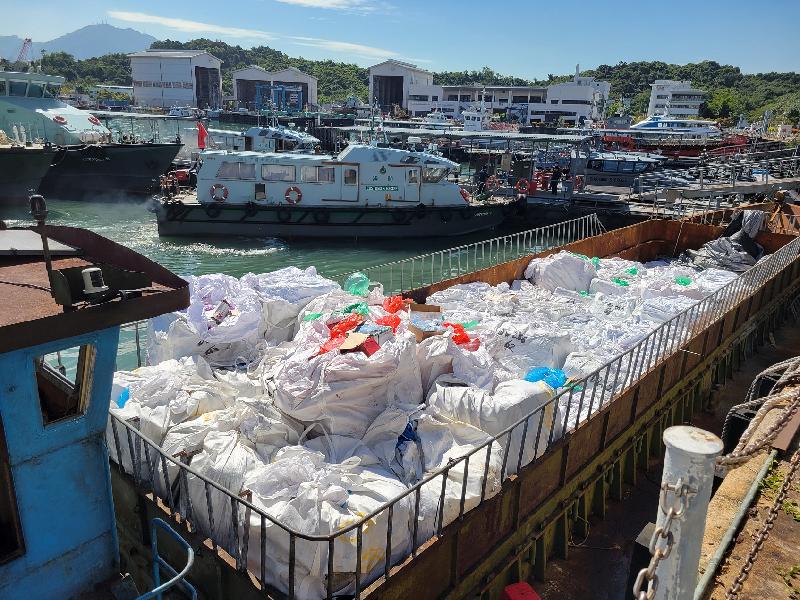The anti-smuggling operation, carried out under the cover of darkness along the island’s south-western waters, also saw officers arrest three men between the ages of 38 and 47.
Smuggling is considered a serious offence in Hong Kong. According to authorities, under the Import and Export Ordinance, “any person found guilty of importing or exporting unmanifested cargo is liable to a maximum fine of HK$2 million ($256,629) and imprisonment for seven years.”
Despite this, the city’s Customs and Excise Department has encountered multiple cases in the past where smugglers have attempted to illegally sneak in frozen meat and produce.
This should come as no surprise, given Hong Kong’s proximity to the South China Sea and the Pearl River Delta, one of the most densely populated regions in the world and a major south-east Asian trading hub.
In another nighttime operation in October of last year, customs agents seized HK$20 million (US$2.6 million) in frozen meat and fruit near Lung Kwu Chau, an island off of Hong Kong’s north-western waters.
The suspected smugglers tried to carry roughly 240 tonnes of contraband goods past authorities using cargo vessels, barges, and tugboats.
This time, twenty-two men between the ages of 20 and 67 were arrested.
Reportedly, they had contacts across multiple international markets. The South China Morning Post reported that the fruit originated from Japan and Ecuador, while the meat came from the U.S., Great Britain, Brazil, Chile, and India.
Hong Kong’s Import and Export taxes stand at approximately 90%, according to the Hong Kong-based newspaper, shedding light on the obvious incentive for smuggling goods past customs authorities rather than declaring them.
They also reported that the Indian beef would not have made it past customs in the first place due to a Chinese import ban made in response to a skin disease that was spreading amongst India’s cows.
Last year alone, Hong Kong customs officials seized 2,500 tonnes of contraband meat bound for mainland China, a figure which was more than their confiscation totals from the preceding 11 years.
Despite this, the smugglers appear to have the upper hand on the authorities. The amount of meat they manage to sneak into China in a single day reportedly outweighs the amount customs agents seize in three months, according to the Hong Kong Free Press.

